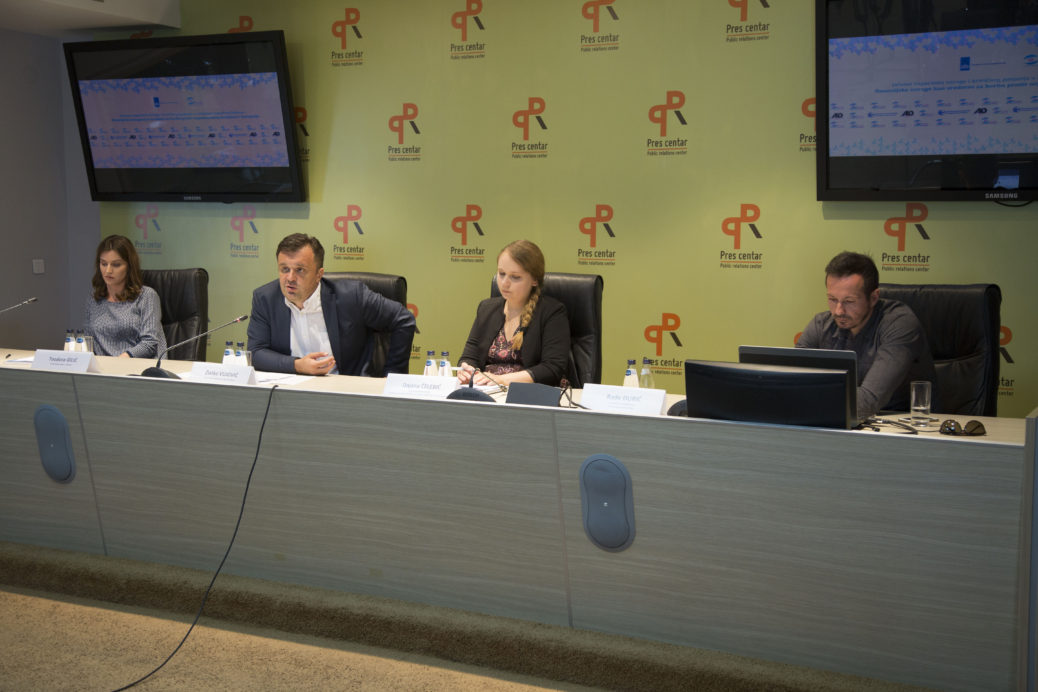The financial investigation in cases of corruption and organized crime requires great resources of prosecutors' offices and other specialized bodies, and can be improved by cooperation at national and regional level, it was evaluated at the press conference.
Today CeMI presented the project “Strengthening Investigation And Prosecution Capacity In The Western Balkans Countries – Financial investigations as a tool to combat organized crime and corruption“, carried out in cooperation with non-governmental organizations Association for Democratic Initiatives (ADI) from Bosnia and Herzegovina and Transparency Serbia.
President of the Governing Board of CeMI, Zlatko Vujovic, said the financial investigation is a very complex institute, which requires large resources from prosecutors' offices and other specialized bodies, but, as he pointed out, it requires legal cooperation with other countries.
"We consider that the regional dimension is very important. This is the first regional project to be carried by CeMI. Throughout the project, our goal will be not only to increase the capacity of prosecutors’ office, but to introduce them to positive examples", said Vujovic at the PR Center.
He explained that attention would be given to getting acquainted with the work of Dutch institutions, because that state, as he said, has very good results when it comes to conducting financial investigations.
"When it comes to the Balkan countries, I believe this experience will be of a great value", Vujovic said.
According to him, as a product of the work on the project, three national studies will be prepared, in which legal and institutional frameworks will be analyzed, as well as, as he said, individual practices on the conduct of financial investigations.
"The studies will include concrete recommendations, which will help decision makers to improve the effects of financial investigations in our countries", Vujovic explained.
Project associate from the non-governmental organization Transparency Serbia, Rade Djuric, said that in the countries participating in the project, there are individual attempts of prosecution, but there are no convictions.
"The law introduces formally great changes, which should essentially be realized. We in Serbia have certain rules and regulations that foresee mechanisms of investigative actions that should enable prosecution, but for some reason it is unsuccessful", Djuric said.
He said that it is time for states to accept that corruption really exists and that it is necessary to fight it.
"I hope that colleagues from state institutions will recognize that, who we intend to train and help through this project", Djuric said.
For Serbia, it is specific that, as he said, politicians announce the adoption of the Law on Proof of Property Origin, but, as he said, it remains in the agendas.
"It is not convenient and worth mentioning something that is not realized in a certain way, and yet we have certain rules that for some reason are not applied. I think this project will help transform the form into essence, because we realized that the law, techniques and people are not enough, but that there must be a will in order to achieve this goal", Djuric explained.
ADI Project Coordinator, Dajana Čelebić, assessed that there were no significant moves in BiH in the fight against corruption and organized crime.
"We had a strategy that was supposed to last from 2014 to 2016, however, this strategy did not bring the desired results and moves for which it was made, because of the fact that established institutions in BiH did not cooperate enough with each other", Celebić said.
She thinks that cooperation on a regional project will contribute to better processing of organized crime in BiH.
"We think cooperation on this project between Montenegro, Bosnia and Herzegovina and Serbia through many positive examples, practices and exchange of experiences will certainly contribute to further improvement of the processing of cases of organized crime in BiH", said Čelebić.
The project “Strengthening Investigation And Prosecution Capacity In The Western Balkans Countries – Financial investigations as a tool to combat organized crime and corruption“, was financially supported by the Embassy of the Kingdom of the Netherlands.
